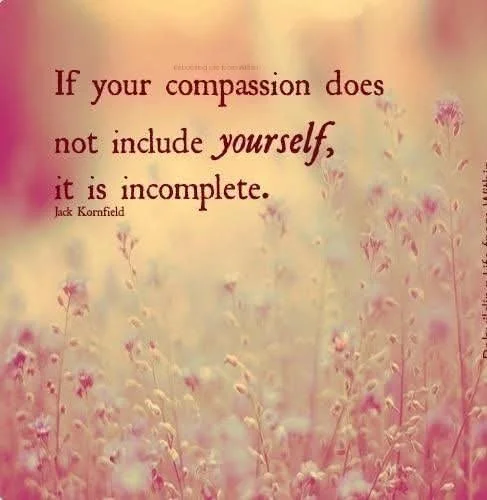Learning to Practice Self-Compassion
Self-compassion has always been one of the hardest things for me to practice. It sounds so simple—just be kind to yourself—but in reality, it’s anything but easy. My default is often criticism: replaying mistakes, wishing I had done better, holding myself to impossible standards.
I’ve learned, though, that compassion doesn’t come to me in the middle of the rush of daily life. To even get close to it, I need space. Very often, that means finding a place of quiet. Sometimes it’s meditation, where I can breathe deeply and begin to soften the edges of my thoughts. Other times it’s a long walk, when I can let my body’s rhythm slow down the busyness of my mind. In those moments of quiet, I can hear something different—something gentler.
As Jack Kornfield reminds us, “If your compassion does not include yourself, it is incomplete.” That truth lands deeply for me. I can extend patience and kindness to others so easily, yet I often forget to offer it inward. Remembering this helps me return, again and again, to the practice of softening my own self-judgment.
What I’ve come to realize is that self-compassion isn’t about excusing everything or pretending I don’t struggle. It’s about remembering I’m human. That I’m allowed to make mistakes. That growth doesn’t happen through harshness, but through patience. When I’m walking in silence or sitting in stillness, I sometimes hear the voice I wish came more naturally: You’re doing the best you can.
It’s not easy. Most days, compassion for myself still feels like something I have to chase. But in the pauses—on the path of a quiet walk or in the calm of meditation—I catch glimpses of it. And those glimpses are enough to remind me that kindness isn’t something I have to earn. It’s something I can give myself, over and over again, even if I forget.
Quiet is where kindness finally has space to speak.

